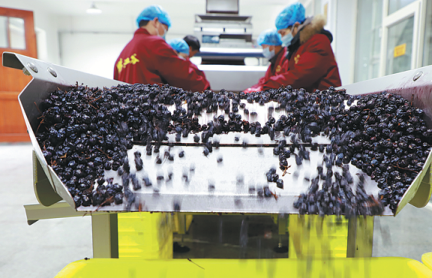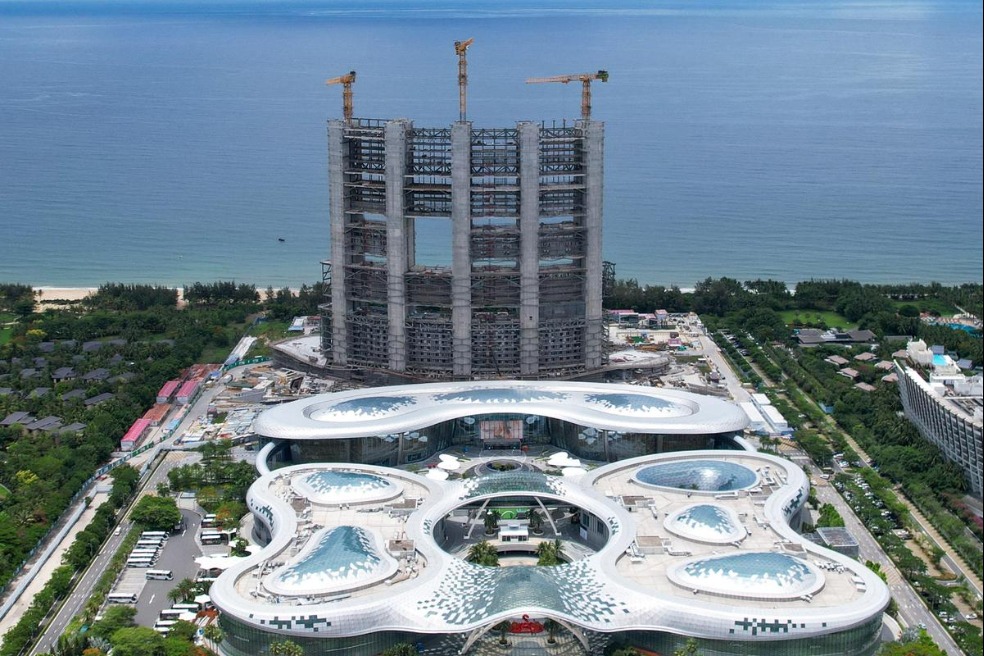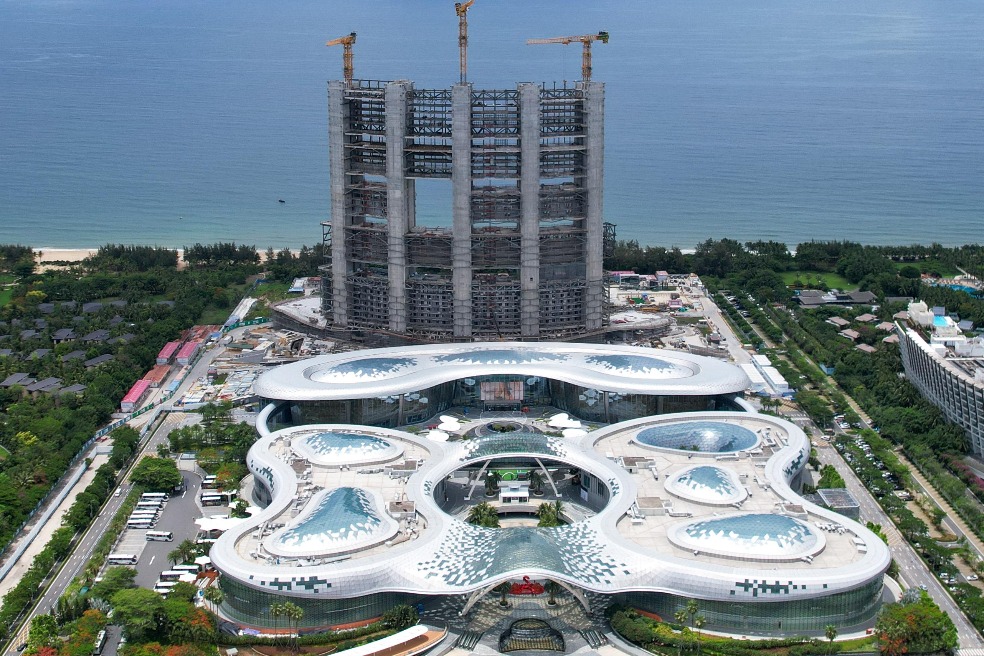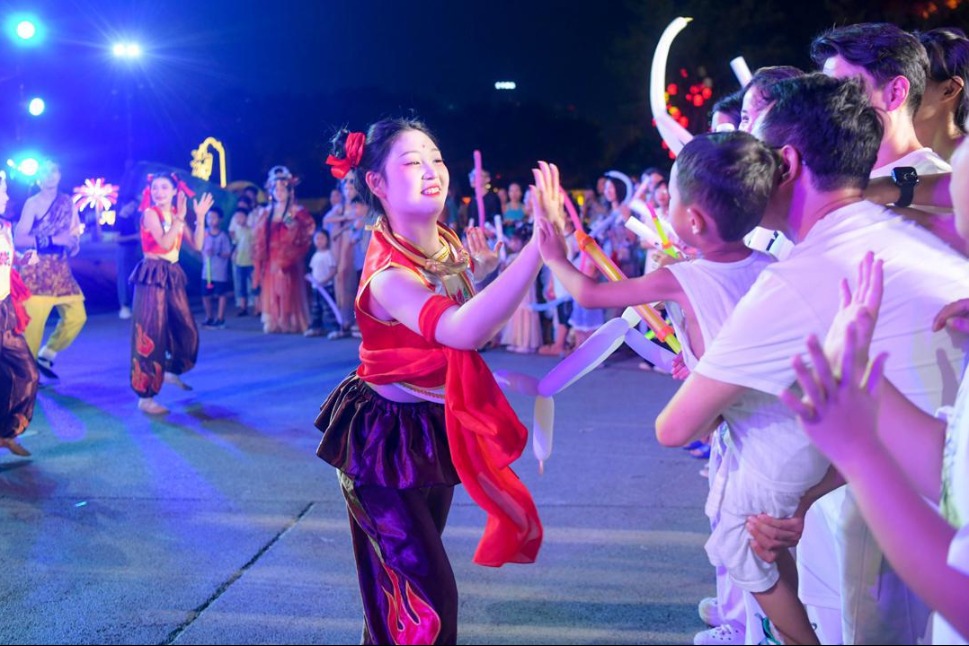Cool rewards for ice wine pioneers

CHANGCHUN-Summer is usually harvest season for grapes. But in northeastern China's Jilin province, vineyard owner Jin Yinhao has to wait for another five months before his can be picked.
The grapes grown on Jin's 17.3-hectare vineyard in the city of Ji'an are called beibinghong, a local variety of Amur grape that can ferment into ice wine with no need for skin maceration.
Known as liquid gold, ice wine is a type of dessert wine produced from grapes that have been frozen while still on the vine. For a wine to be designated as ice wine, the grapes must be picked at around-8 C.
"Good wine is actually planted. We have to manually weed and also control the yield to ensure the quality of every grape," said Jin, 63, adding that the grape variety could yield 22.5 metric tons a hectare but the yield was deliberately limited to 6 tons.
The beibinghong variety was developed by experts from the Chinese Academy of Agricultural Sciences in 2008, and Ji'an has since developed a complete ice wine industry chain that covers grape growing, processing, logistics and sales.
The city has the perfect climate for growing wine grapes as the Changbai Mountains shield the area from the chilly northern wind and the Yalu River brings in warm air.
"Because of the strict climate requirements, ice wine production bases can only be found in a few places such as Canada, Germany and Austria," said Sun Yanfeng, director of the Yalu River Valley Amur Grape Wine Research and Development Center in Ji'an.
The center is a public service institution co-founded by the local government, China Agricultural University and local companies.
Sun said Ji'an produces highquality ice wine, with its output accounting for one-sixth of the world's total.
Kong Qingsen, who operates a local winery, said that to guarantee a sweet taste, local farmers have to pick the grapes in mid-December, when the temperature is neither too high nor too low.
"The grapes will melt if it's too hot and will be frostbitten if it's too cold," Kong said, adding that the picking has to be done before the sun rises, as sunshine will also melt the frozen grapes.
Since 2016, Kong has seen all of the 50,000 to 60,000 bottles of ice wine produced by his winery every year sell out.
Over the past five years, Ji'an wineries have won more than 36 prizes around the world, including at the international wine contest in Brussels, Belgium. Their midrange products are now sold for around 1,000 yuan ($143) a bottle.
Farmer Sun Lianbo from Qingshi township grew grapes for 30 years before learning how to make ice wine from the R & D center. Now, he sells his homemade ice wine online.
"Compared with growing grapes, the ice wine business is far more profitable," he said. "I can earn an additional income of more than 100,000 yuan annually simply by selling ice wine online."
Ji'an is now home to 20 wineries and more than 2,500 households are engaged in the growing of Amur grapes, with an annual yield of 20,000 tons. The grapes are provided to local wineries, as well as famous domestic wine brands such as Zhang Yu and Great Wall.
Since 2016, the city has held an annual ice wine festival, attracting tourists and wine connoisseurs alike.
"We plan to develop chateau tourism so that more consumers can enjoy the taste of sweet ice wine and the beauty of the Yalu River," Kong said.


Today's Top News
- Japanese PM may resign by August: media
- Hainan Free Trade Port to launch island-wide independent customs operation
- Trump says US completes trade deal with Japan
- Washington announces leaving UNESCO again
- More occupations bolstering China's employment market
- Is US tariff deal good or bad for Indonesia?






























